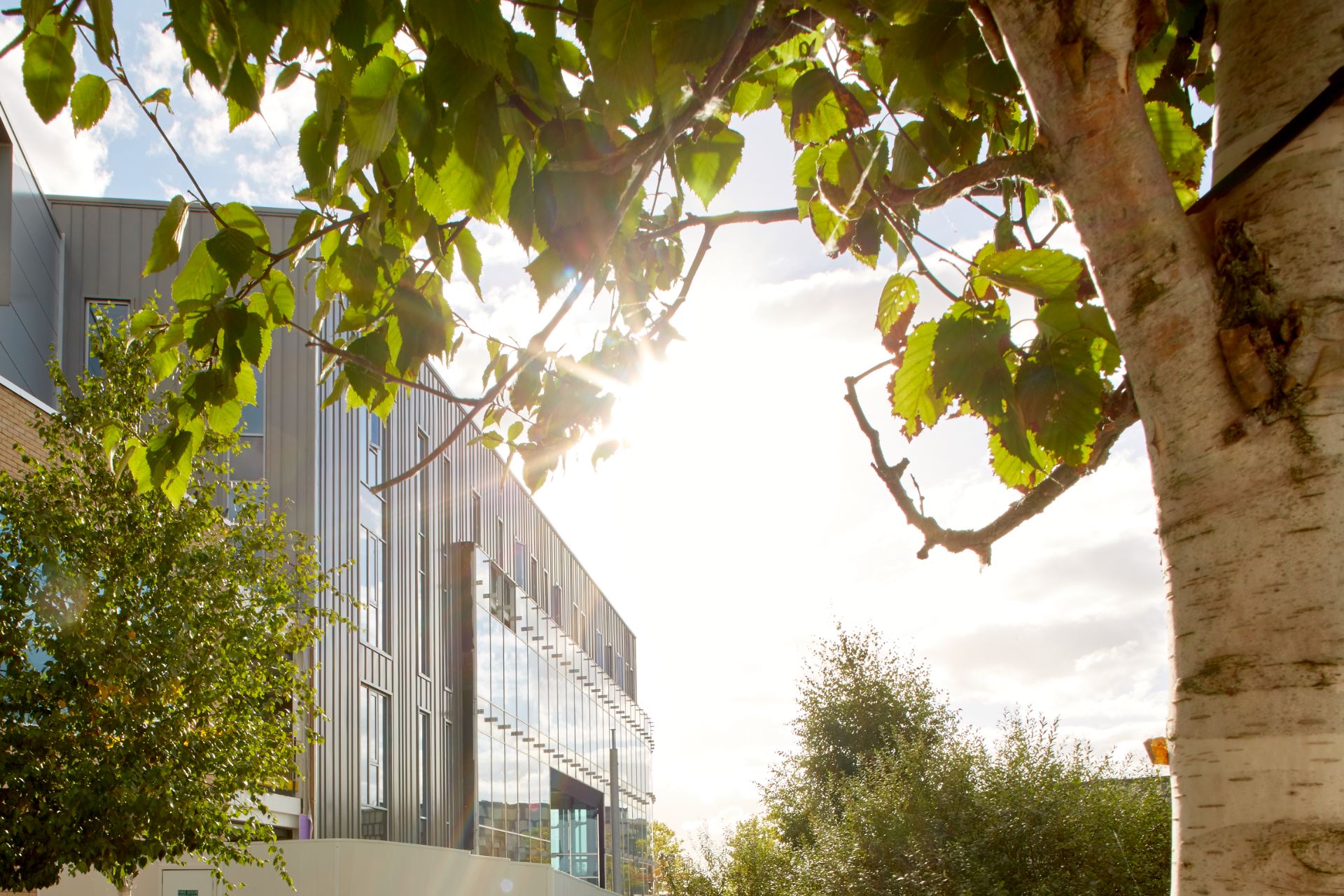Who else feels like they’ve blinked and it’s suddenly Autumn? Where has Summer disappeared to?
For us in the the College, it’s been a busy few months getting ready to welcome a new cohort of students, organising the bittersweet Graduations (for any Graduates who may be reading this, congratulations! – we will be sad to see you go) and many other exciting events for the coming months…
Throughout the summer, we have heard about ’Summer Successes’ which have come from both staff and students. So grab a drink, make yourself comfy and settle down to read some of our stories.
What has been your achievement for the summer?
First we heard from Caitlin Pollard, who is one of our Third Year, Sports and Exercise students.
Caitlin interned at Quinnipiac University in Connecticut as a strength and conditioning coach for the Men’s and Women’s Ice Hockey and Basketball teams. Caitlin also helped the head coach with the athletes in the weight room Monday- Friday; every team trained for 90 minutes a day.
So I know what you’re all thinking, how did Caitlin manage to get the internship? Well during a Strength and Conditioning class, the opportunity was shared. Caitlin then emailed her CV and cover letter to a liaison at IUSCA. Following a successful interview, they placed Caitlin at a suitable university.
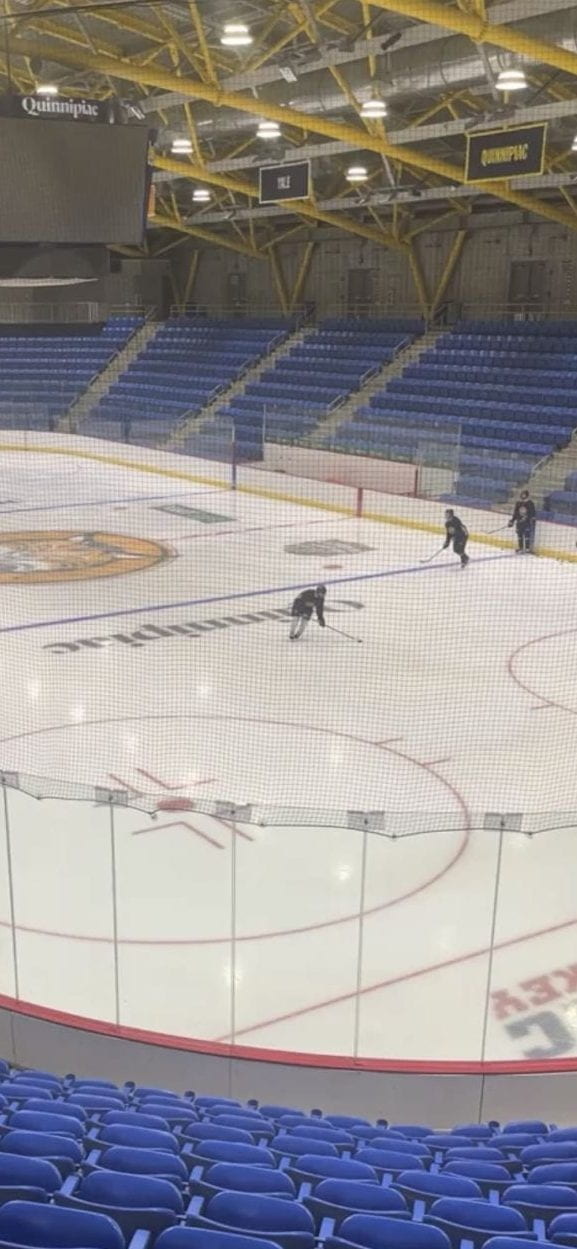
“My main goal was to aid the head coach in training the sports team during their summer season to get their physical fitness up before starting an intense pre-season. This linked to my studies as one module I was most interested in pursuing was strength and conditioning coaching.
By doing the internship it improved my ability to communicate with various people, along with splitting my attention in order to help or notice as many athletes as possible during their training session. I also expanded my training knowledge in different ways to adapt a programme to suit everyone even with injuries.
Overall, I think my highlight was meeting lots of different athletes and coaches to see how training differs depending on who is being trained and how the coach is. Different coaches have different teaching styles and some teams need more help finding confidence in the weight room, whilst others just need encouragement to keep pushing forward.”
Our next student is Emily Needham, who studies Adult Nursing. Emily has just completed a 4 week elective placement in Tanzania at Muhimbili National Hospital.
We asked Emily about her elective and this is what she told us…
” I had always had the idea I wanted to go overseas for my elective but didn’t really think it would be possible. It was initially difficult to organise, as there were many parts to think about; one of those being the cost. However, the university advised me of the funding through the turning scheme and other grants that the university offered that I might be eligible for. This trip would not have been possible without the funding as I live alone and have to work bank shifts as well as my student finance to pay the mortgage and bills. There were many things to organise before my trip vaccinations, visa, PPE, just to name a few and the university were very supportive and advised me about these.
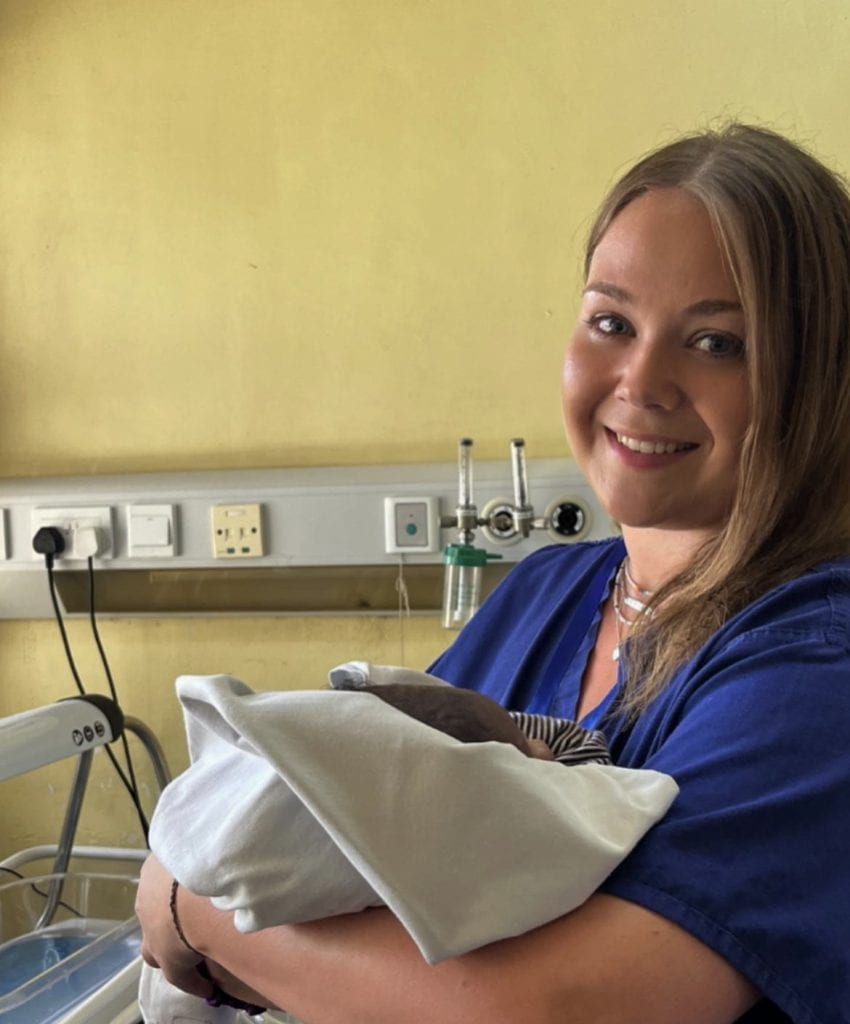
I was interested to see how the staff practiced with a lack of resources and learn a new language but my main goal was to push myself out of my comfort zone and I certainly did that. I lived in a house of 36 medical students 6 people to a room with bunk beds. I found this hard at times but I met students from all over the world. It was a wonderful experience getting to know everyone in the house. We all went out as a house on a Wednesday and then had a house bbq on a Thursday. It was lovely to see that people who didn’t even know each other could still support each other as a group.
I struggled with culture shock not being able to go anywhere alone due to safety as I am so independent at home and I have never experienced being the minority before but feeling vulnerable due to the colour of my skin made me very aware of how minority groups may feel. Sometimes I felt very out of place. However if you tried to speak to the staff in Swahili the staff were welcoming.
I have become much more resilient during my time of placement, which will aid me as I become a nurse. I have stepped out of my comfort zone and become more confident in myself and my own ability and learnt to just give things a go. I’ve learnt how independent I am and I’m very proud of my self for flying to Tanzania completely alone. My attitude towards life has changed and I feel so grateful for the NHS and the life I have at home. I have also learnt to speak Swahili.
The highlight for me was all the wonderful people that I met – I made friends for life. I made memories that I will cherish forever and I have returned home with a completely different attitude towards life. With more motivation, confidence and drive than I have ever had. I feel more confident that I will be a great nurse and very grateful for the NHS. I also enjoyed visiting 198 year old tortoises on prison island and horse riding on Zanzibar beach.”
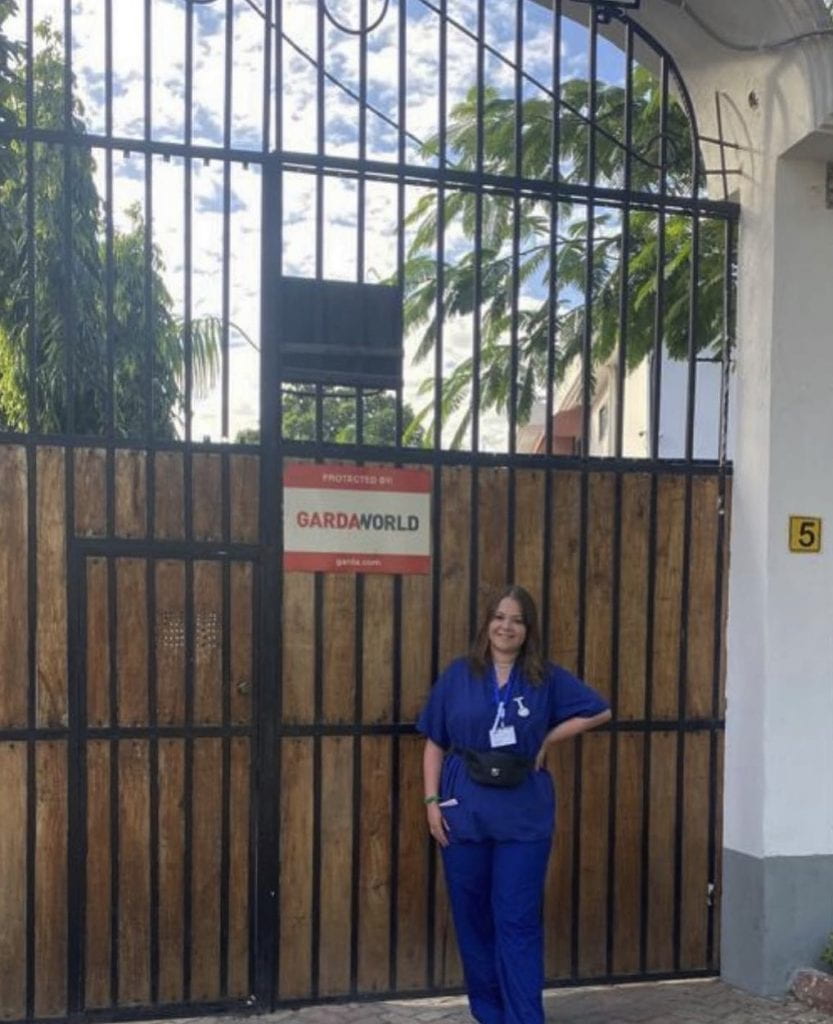
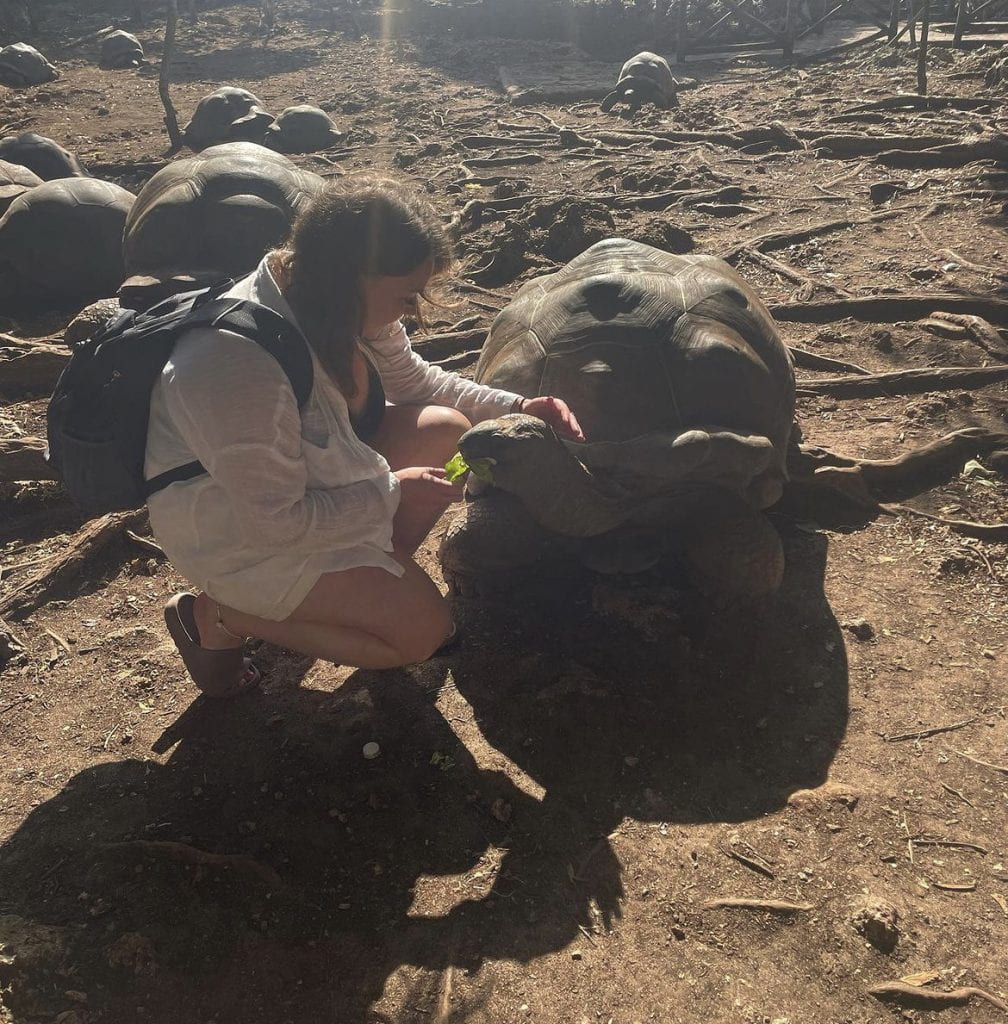
Next we heard from Nicole Wells, who is one of our First Year PHD students, who has been collecting data over the summer.
“I have been data collecting over the summer for the first study of my PhD. The project is exploring life skill and positive youth development through sport, and invites 12-17-year-olds who participate in organised sport, and their parents, to complete an online survey answering questions around life skills, wellbeing, and enjoyment of, and engagement with their sport. Whilst many participants have completed the survey remotely, I have also visited a national tournament and a local football academy to invite players and parents to take part in my research.
Although part of my PhD data collection, the opportunity to go out to visit clubs and organisations has come from building on connections within the University. What started out as contacts being passed on, has resulted in growing networks of supportive people and organisations.
The main purpose of this project has been to collect data. From the results of this study, I am hoping to gain a better understanding of what life skills youth already possess, and if there are any links between these skills and psychosocial outcomes, such as their wellbeing, or how much they enjoy or engage with their sports. This forms the initial part of my PhD, through which I am hoping to further explore what role sports play in the development and transfer of life skills in youths, and how this occurs.
One challenge has been getting the desired number of participants to complete the survey (around 300!). It has involved numerous emails, follow ups, meetings and some cross-country travelling to facilitate participation. I am still in the process of data collection – if anyone is involved with groups of 12-17-year-olds I would be happy to hear from you!
I have gained a lot of experience in data collection, from how to go about online data collection from a large sample, to collecting data in person. With each interaction I am learning about what works well in certain settings, and what I can do to improve in future encounters.
My personal highlight was attending a national youth basketball tournament, and being able to interact with parents, players, coaches, physios and more! I also got to watch some great games of basketball.
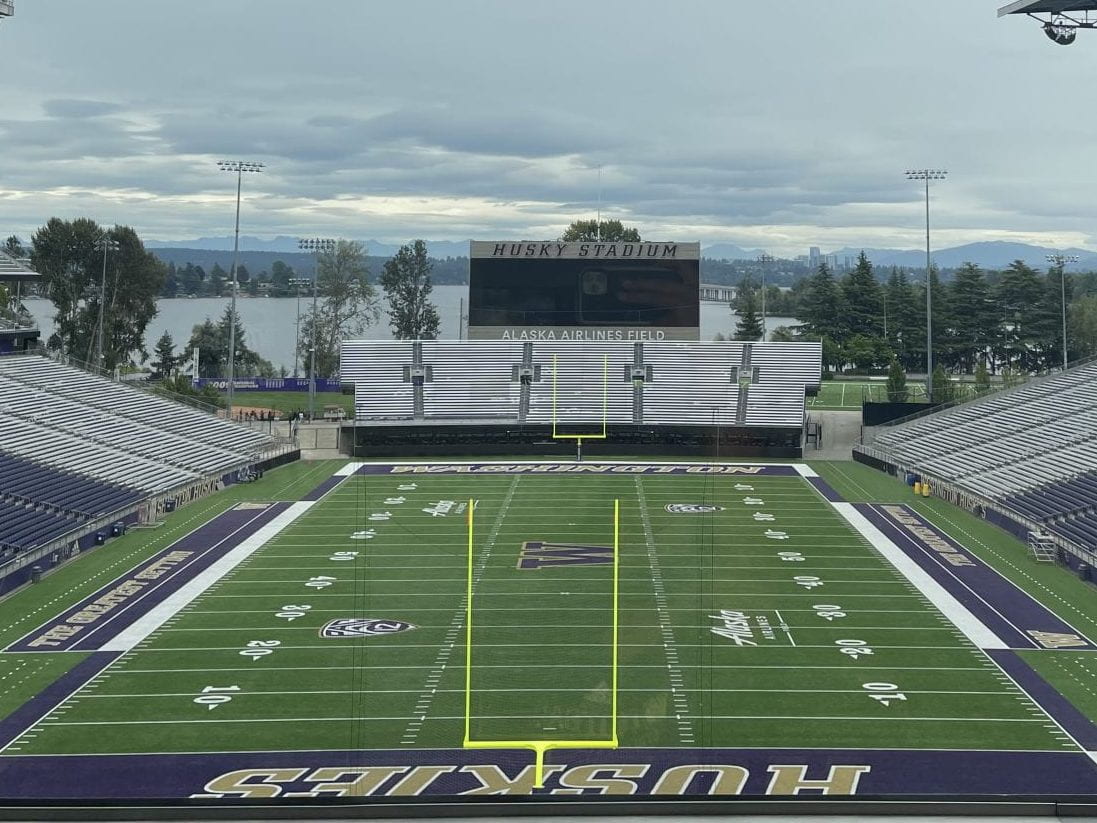
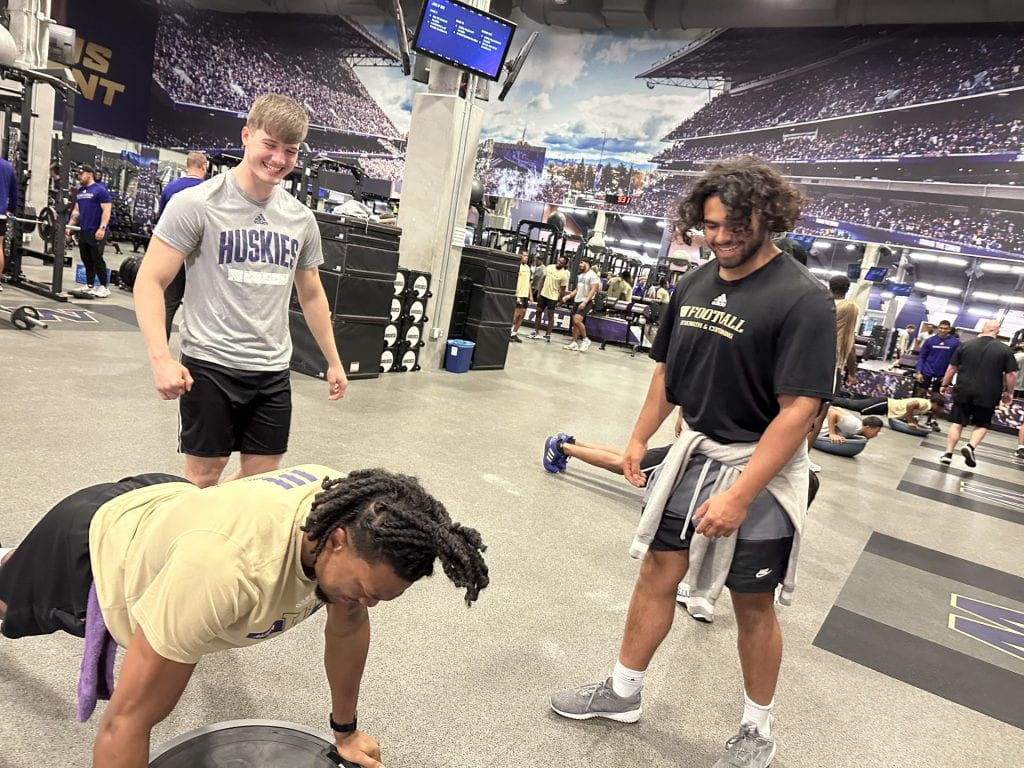
Our next student is Dhani West, a first year student. We asked Dhani to describe their experience at an internship programme at the University of Washington.
“My internship took place in Washington State, University of Washington with the Washington Huskies American football team, it was a brilliant experience learning so many new technologies and techniques for coaching S&C from the head coach “coach Mac” as well as his assistant coaches who’d do lectures for us after all the coaching work was completed. Playing American football myself helped me fall into place very quickly allowing me to form great bonds with the offensive and defensive players I had at my rack. I was given the responsibility of handling multiple players at your rack, as an intern, it was amazing and allowed another level of experience in coaching that other internships may not have offered especially the level that the huskie athletes are at it was a very big privilege to have whilst I was there. I was accommodated at U-district only a 2 minute train ride from campus which made a lot of convenience getting to the football stadium and back. Normal days had us in the stadium for 6:00am in the morning making me wake up around 5:00am most days. The day would last till around noon which consisted of offensive and defensive weight sessions as well as a conjoined run/agility/conditioning, depending on the day, this allowed the whole afternoon off where I could go explore Seattle, Washington with the other interns. There was 9 other interns with me which made it a very fun experience in and out of work time going on various hikes up mountains exploring beautiful lakes and going to various places for food.
Around a month into my first year in my strength and conditioning programme in sport, as a group we had a talk with Andrew Langford, one of the coordinators from the IUSCA ‘International Strength & Conditioning Association’ who told us about doing a placement for S&C in the US. This interested me from the get go as learning how another country does S&C broadens opportunities especially if you’ve had experience doing international work. He required us to hand him a resume and cover letter only 3 days after talking to us which was short, however if an opportunity is given to me to benefit my degree I’m 100% going to take it. This led onto two interviews with Andrew and the head strength and conditioning coach at where I was going to go (Coach Mac, University of Washington)”

Our final success story is Ian Trueman, one of our Associate Professor within the School of Health and Social Care. Ian’s summer success was working with a company to deliver the European Resuscitation Council.
“I have been a qualified Advanced Life Support (ALS) instructor for about 10 years and have worked with a company to deliver training to the tri services immediate life support training as part of the pre-deployment training for Afghanistan and Iraq. They were approached by the Chinese trade ambassador to deliver ALS to local Doctors and Nurses in Shenzhen and I was invited along to act as part of the faulty.
The aim objective was to introduce the European Resuscitation Council ALS approach as an alternative method of delivering safe and effective Advanced life support during critical illness and specifically cardiac arrest. I have worked as a Nurse Responder for Lincolnshire Integrated Voluntary Emergency Service (LIVES) for over 15 years and this links into various workstream both within the University and my teaching and research interests and also other strands of work I undertake outside of the university to keep my clinical skills up to date.
The language barrier is one the largest issues as very few people speak English in this region of China. Teaching with interpreters is very difficulty when you are relying on them to explain difficult to grasp concepts. We found that we had the dilemma of crossing between a translator who spoke good English but didn’t have a medical background or a person with a good medical background but wasn’t as an effective translator as their English was as strong as we needed. We found that a combination of hand gestures and practical demonstrations seemed to be an effective complement the spoken descriptions.
It was fascinating to understand further the Chinese health system and the ALS practice and the regional differences across such a vast country. As is often the way we also took elements of their practice away which has given us food for thought, especially around how to better deliver such training in the future and how to contextualise it to offer greater practical meaning and relevance to the participants.
My highlight of the experience was working with a diverse range of people. China is huge and to have the opportunity to deliver the training in both Shenzhen and Pu’er several thousand miles away was a privilege and a once in a life time experience.”
